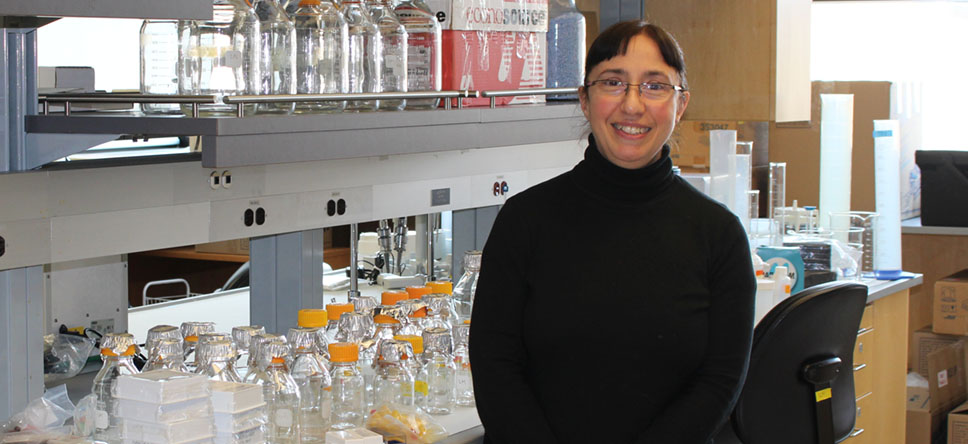
Deconstructing diabetes
Diabetes is a leading cause of blindness, kidney failure, heart attacks, stroke and lower limb amputation in countries around the world.
“It’s very serious and it’s growing fast,” said Dr. Lucy Marzban, a researcher and associate professor in the College of Pharmacy at the Rady Faculty of Health Sciences.
So far there’s no cure for diabetes, only management. That means patients have to keep a close eye on insulin levels, follow a strict diet and get plenty of exercise. It’s not easy.
Marzban has been taking a close look at the mechanisms of diabetes, right down to the cellular level of the pancreas and its insulin-producing beta cells.
In the past decade, life-changing transplant surgery has allowed surgeons to place beta cells from donors into those with Type 1 diabetes. And it works. For a time. “The problem is, it’s not a permanent solution,” says Marzban.
Within five years, the beta cells will likely fall victim to the patient’s immune system or be damaged by toxic proteins, known as amyloid. Ultimately, the patient will need another transplant or return to insulin injections. Amyloid plays a role in those with Type 2 diabetes too, slowly damaging beta cells and causing the progression of the disease, meaning patients may eventually need to endure the same strict regimens as those with Type 1.
“If we can keep the transplanted beta cells happy, the Type 1 diabetes patient won’t need another transplant or insulin injections,” said Marzban. “And if we can maintain the patient’s own beta cells in those with Type 2, they can enjoy a normal life for a longer time.”
She joined the College of Pharmacy in early 2019, knowing that with a high incidence of diabetes in the province, she would be well-placed at the University of Manitoba to make a difference. While a dedicated researcher, she is just as keen to work with students as she is to spend time in the lab.
“I’ve definitely had a lot of different roles!” said Marzban, who has been awarded multiple teaching awards from UBC, where she began her career.
Marzban’s education is diverse, as are the countries where she studied. Her PhD is in pharmacology from the University of British Columbia (UBC). Her clinical doctorate is in pathology and laboratory medicine from the Faculty of Medicine at the University of Tehran. Her postdoctoral fellowship is from the department of pathology and laboratory medicine, UBC and the department of medical genetics, University of Geneva.
Her training in pharmacology and pathology, a discipline that considers all parts of the body, has led her to teach not only in pharmacy but in dentistry and medicine as well. For her, this is just one more way she can support the interdisciplinary priorities of the Rady Faculty of Health Sciences.
In her work prior to joining the U of M, Marzban and her team identified some of the cellular pathways and key molecules linked to death of beta cells in diabetes. Her diabetes research program, supported by CIHR over the past 10 years, mainly focuses on molecular mechanisms of amyloid toxicity.
In her new role at the College of Pharmacy, she’s begun searching for targets for new pharmacological approaches that could be life-changing for patients with diabetes. “I always think, what can we do at a cellular level to help them?” she said.
She doesn’t want to jinx it, but she’s hopeful that the University of Manitoba can play a key role in finding a cure for diabetes. “The discovery of insulin happened at the University of Toronto and the first islet transplant happened at the University of Edmonton,” she pointed out. “Maybe we could be next!”






